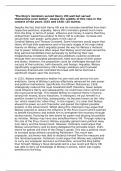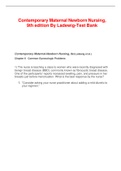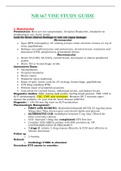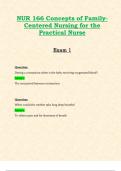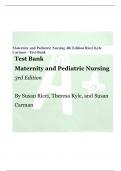Exam (elaborations)
‘The King’s ministers served Henry VIII well but served themselves even better’. Assess the validity of this view in the context of the years 1515 and 1540. (25 marks).
I think I obtained an A grade for this particular essay. I think I scored 18/25?
[Show more]
